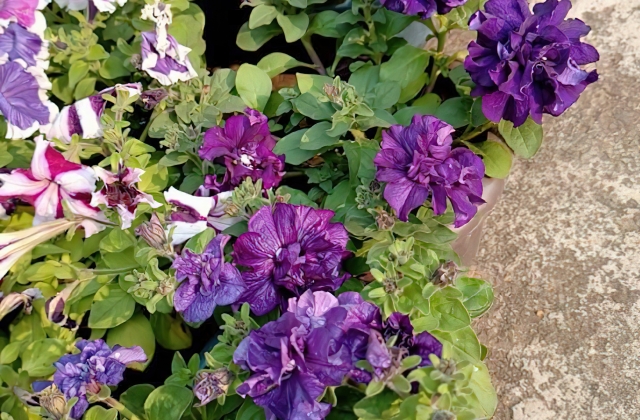Choosing the Best Type of Mulch For Your Flower Garden

The best type of mulch for flower garden plants is primarily decorative in nature rather than functional. However, it does need to serve a definite purpose. Flowers should be the primary focus of your flower garden. A beautiful display of colors should be the focal point rather than a pile of rocks and grass. A beautiful garden is only as good as the care taken to maintain it. This article will give you information on what the best type of mulch is for growing flowers in your flower garden.
Most flower gardens need a good layer of organic mulch over top to protect the plant from the elements and to keep the soil moist and the plant healthy. The best mulches are naturally colored, so they don’t compete with the plants for nutrients and water. Dark brown and black make the most vibrant plants pop right out at you. You want a fine mulch that is porous so that it is easier to spread across plants of different sizes and shapes, and that is porous so that it doesn’t stand up to heavy snow or rain. Most perennials benefit from living mulches.
When you are planting flower seeds, make sure that you do not use a coarse aggregate mulch. If the plant gets a kick out of it, then it will just put the plant at risk of breaking or twisting under the pressure. Instead, opt for medium density coir. It will make sure that the plant has a nice thick layer of fiber for support, but it will not be too rough on the plants.
You need to mulch when planting flowers that will be growing quickly. If you are planting perennials, then there is no need to add mulch until the first year. This will allow the new growth to get the proper amount of sunlight and make sure it gets plenty of nutrients. Flowering plants like tulips and daffodils will start to bloom the second year after planting. These bulbs can also benefit from living mulches. Make sure you read the instructions that come with the plant as well as understand the plant needs to have a minimum of one inch of water for each inch of growing height.
Gardeners who have a natural aversion to pine needles should also consider using mulches instead. While pine needles can be a beautiful addition to a flower garden, mulching your garden with pine needles will make it undesirable. Mulches work better with softer plants and foliage types.
Different mulches work better with different soil characteristics and organic mulches can be used on both wood and non-woody plants. The best mulches to use are those that contain at least 50% organic materials. These mulches will provide the nutrients needed by your plants as well as preventing soil erosion. They also help to regulate the temperature and moisture content in the soil.
There are several advantages to using mulches in a flower garden. The first advantage is that mulching can protect your flowers from damage from the sun as well as help them develop a deeper color. Secondly, mulching will reduce the risk of disease by providing an additional layer of protection against organisms that destroy plants. Finally, mulching will protect your plants from harsh winter conditions. This can be accomplished by spreading mulch over the entire flower bed.
Another option for insulating the soil around flowers is to place an organic mulch layer directly on top of the soil. In order for this to work, you will need to purchase a good organic mulching product. Mulch is available in a wide range of different types, sizes and textures. The best mulches have a coarse texture, so they will break down into smaller particles that will stay in the soil longer. You will also need to mulch around flower beds as well as around driveways and sidewalks.